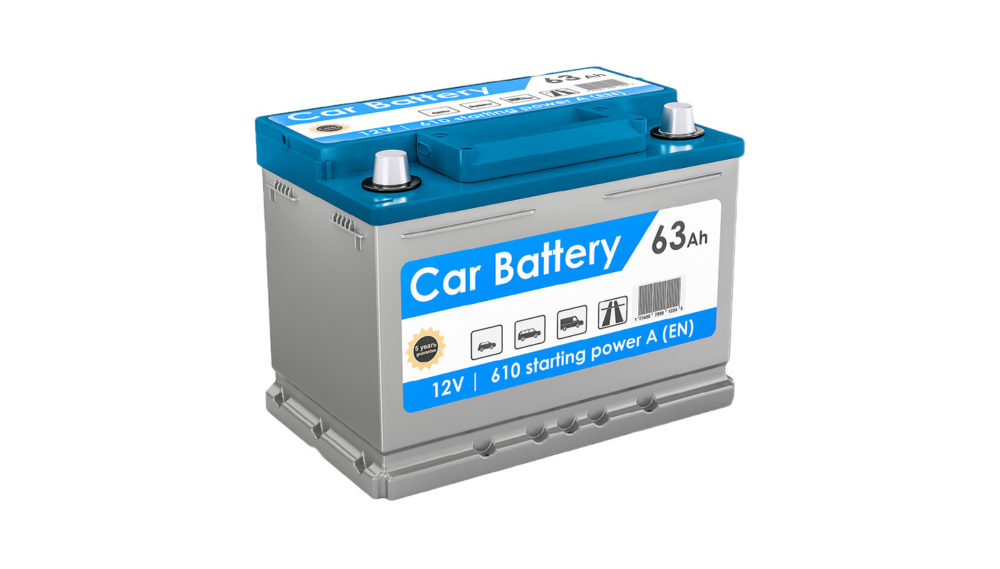Last Updated on March 25, 2023 by Ryan
Yes, a car battery can get wet. It is important to note, however, that certain types of batteries are more vulnerable than others when exposed to moisture. Lead-acid batteries are most commonly used in cars and can be damaged if exposed to water for extended periods of time due to the build up of hydrogen gas from electrolysis.
This can lead to internal corrosion and reduce performance or even cause it to fail completely. If your car battery does get wet, you should immediately disconnect it from the vehicle so as not to damage other components such as the alternator or starter motor. Additionally, you should wipe off any excess water from the terminals and then check for signs of corrosion before attempting to start your engine again.
Yes, a car battery can get wet. In fact, it is not uncommon for car batteries to be exposed to moisture due to rain or other extreme weather conditions. While the battery may still operate initially after getting wet, prolonged exposure can cause corrosion and damage that may eventually render it unusable.
To prevent this from happening, make sure your vehicle’s battery compartment is sealed properly and clean any corrosion away immediately if you notice any buildup on the terminals or cable connectors.
Here's Why Your Car Battery Keeps Draining
What Happens If You Get a Battery Wet?
If you get a battery wet, it can be extremely dangerous. Water and electricity don’t mix, so if water makes contact with the terminals of an energized battery, there is potential for short-circuiting which could cause sparks or even explosions. Additionally, the internal chemical components of the battery may be damaged by water exposure, leading to corrosion or other damage that renders the battery unusable.
If a wet battery does need to be handled for any reason, one should wear protective gloves and eyewear as well as take extreme caution in order to avoid injury.
Is It Safe to Change a Car Battery in the Rain?
Generally, it is not recommended to change a car battery in the rain. Rain can cause corrosion and create electrical hazards that could damage your car or injure you. Additionally, water on the ground can make it difficult to access the battery safely, as well as making tools slippery and hard to handle.
If you absolutely must change a car battery in rainy conditions, wear rubber gloves for protection against electric shocks, use waterproof covers over any exposed electronics or wiring connections on the vehicle and thoroughly dry off all parts of the car before attempting any repairs.
What Happens If a Car Battery Gets Submerged in Water?
If a car battery gets submerged in water, it can cause serious damage to the internal components of the battery. Water can corrode and destroy the lead plates inside the battery, rendering it useless and unable to hold any charge. Additionally, if water gets into the cells of an acid-filled battery, this can create a potentially dangerous chemical reaction that could result in explosion or fire.
In order to avoid these risks, it is essential that you replace your car’s battery as soon as possible after it has been submerged in water.
Can You Spray Water on a Car Battery?
Yes, it is safe to spray water on a car battery. Water can help keep the battery clean and free from dirt or debris that may cause corrosion. Spray a light mist of water over the top of the battery to remove any dust buildup that could interfere with its performance.
Be sure to use distilled water instead of tap water as it does not contain minerals which can corrode the electrical components in your vehicle’s system. Additionally, avoid spraying directly onto any cables attached to the terminal posts so you don’t risk shorting out your vehicle’s electrical system.

Credit: wuling.id
Can a Car Battery Get Rained on
It is generally not recommended to leave a car battery exposed to the elements and rain, as it can cause damage. In most cases, it is best to keep your car battery covered or stored in a sheltered location. Additionally, if the battery becomes wet from rain, be sure to dry it off thoroughly before use.
Car Battery Sitting in Water
If your car battery is sitting in water, it needs to be removed and replaced as soon as possible. Water can cause severe damage to the internal components of a car battery, resulting in reduced performance or even complete failure. Additionally, any exposed metal parts on the surface of the battery could potentially corrode and deteriorate if left submerged for too long.
It’s important to take precautionary measures when dealing with this issue by wearing protective gloves and eyewear while removing the old battery and installing a new one.
Water under Car Battery
Water under your car battery is a sign of corrosion. Corrosion occurs when the metal terminals in your car’s battery become exposed to air, moisture, and other elements through cracks or fissures in its case. This can cause damage to your vehicle’s electrical system, as well as create safety hazards due to increased risk of fire.
If you notice water under your car battery, it’s important that you contact a professional mechanic right away for inspection and repair.
Conclusion
In conclusion, car batteries should never be handled in wet conditions. Even if the battery appears to have a waterproof seal, water and chemicals can still seep in and cause damage. It is important to take proper precautions when handling a car battery by checking for signs of corrosion or wear, using protective gloves and goggles when necessary, and avoiding anything that could leave moisture on the surface or inside the battery.
Taking these simple steps can help keep your car running smoothly while keeping you safe from potential harm.


